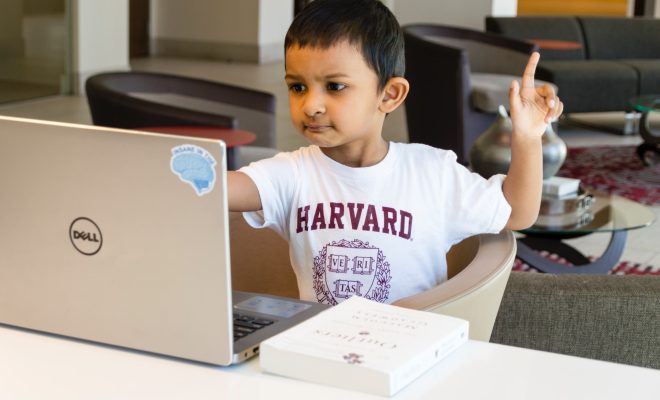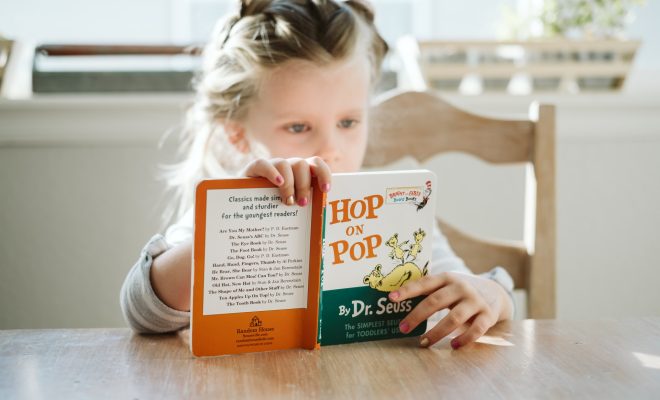Pull Your Own Weight: The purpose and point of the program

**The Edvocate is pleased to publish guest posts as way to fuel important conversations surrounding P-20 education in America. The opinions contained within guest posts are those of the authors and do not necessarily reflect the official opinion of The Edvocate or Dr. Matthew Lynch.**
A column by Rick Osbourne
In his insightful 2008 book entitled The Path to Purpose Stanford professor Dr. William Damon contends that in its frantic, frenzied efforts to stuff a multitude of facts into our kids heads and to test their ability to regurgitate those facts, modern education has lost track of “the why question.”
In other words the missing ingredient that leaves so many American students lost, disoriented, rudderless, directionless, cynical, and apathetic is modern education’s failure to address THE PURPOSE of learning and regurgitating all those facts. But without an understanding of why they’re doing what they’re doing, students are filled with experiences that lack depth, meaning, and PURPOSE.
In his insightful 1993 book entitled Punished by Rewards, Dr. Alfie Kohn contends that modern educators depend on extrinsic rewards (i.e. stars, stickers, pats on the head, and grades) in order to motivate kids. But since those extrinsic rewards are controlled by people other than the students themselves, they systematically undermine the intrinsic motivation which gives any legitimate educational experience its value, depth, meaning, and PURPOSE.
However, due to modern education’s mass produced, assembly line characteristics (think large classes of kids dashing from class to class whenever the next bell rings), teachers lack the time and/or inclination to address “the why question” in any meaningful way. Instead they resort to filling in that void with stars, stickers, and grades. In the process THE SYSTEM EFFECTIVELY UNDERMINES the possibility of cultivating any real sense of PURPOSE.
Even a cursory examination of classic educational theorists including Piaget, Erikson, Montessori, and Rousseau, reveals that for these folks the purpose of a well-conceived education was/is AUTONOMY. In other words, a well-conceived education is designed to give students the tools they need to think for themselves, to draw their own conclusions, and to act accordingly. It gives students the tools they need to take responsibility for themselves and eventually their families, their neighborhoods, and their communities. A good education produces good citizens.
With all that said I would now like to turn to a brief examination of Operation Pull Your Own Weight (OPYOW) and how it addresses “the why question.” The program challenges kids to learn to do a pullup, through practice and self-determination. At first glance, as the American Society of Exercise Physiologists has said, it’s “A simple, easily implemented, easily documented, and affordable solution to childhood obesity.” That’s a good and accurate description of OPYOW from a strictly physical perspective.
But if you’re willing to dig beneath the surface you’ll discover that OPYOW is built on the premise that “All kids want to be strong at everything and weak at nothing.” Yes, all kids long to be godlike, independent, and to govern themselves. The natural tendency and desire to grow stronger (physically, mentally, spiritually, socially, etc.) is built into the genes, into the DNA of all kids starting from day one, and it remains there (although often camouflaged) for life. After all, it’s always cool to be strong, and un-cool to be weak at anything.
In the process of digging you’ll find that, despite an environment that encourages the polar opposite, the OPYOW experience cultivates “Yes I can” over “No I can’t.” Starting at a very physical level it fans the flames of winning over losing, of being over non-being, of “never, never, never giving up.” And within this ultimately simple experience you’ll find self-respect, mutual-respect, democracy, enlightened self-interest, intrinsic motivation, autonomy, and purpose. In the heart of hearts, every kid longs to be able to pull his or her own weight in every conceivable way.
—
Rick Osbourne is former physical educator and a pioneer in the field of functional childhood obesity prevention. He currently serves as President of the Pull Your Own Weight Foundation which is an Illinois based, 501c3, not for profit organization whose focus is functional childhood obesity prevention. He’s written and published three books in this field, the latest of which is entitled Beating Childhood Obesity Now: A Simple Solution for Parents and Educators. He’s the Examiner’s national childhood obesity prevention correspondent. He writes an online column for The Edvocate. And you can connect with Rick via Twitter, Linkedin, or Facebook.






